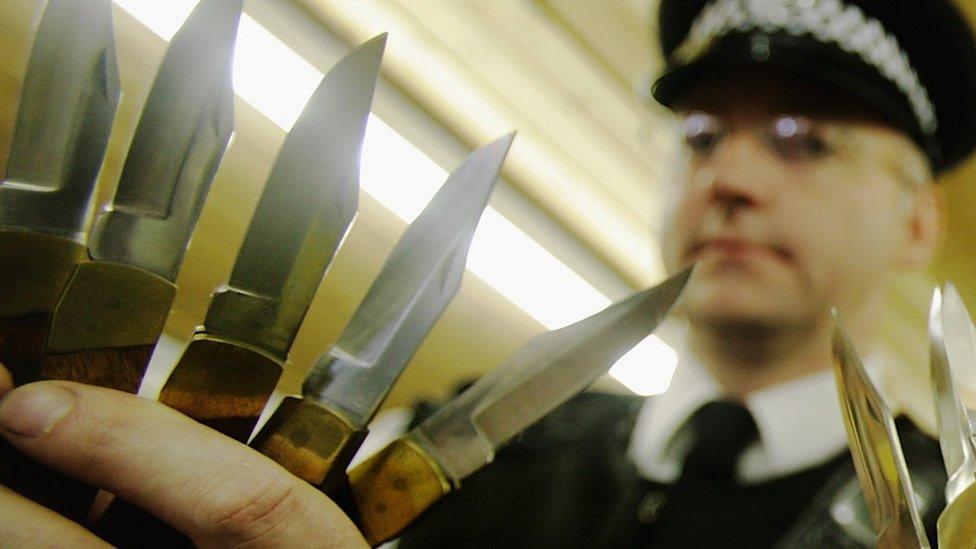Knife crime: Treat it 'like a disease', says Sajid Javid
- Published
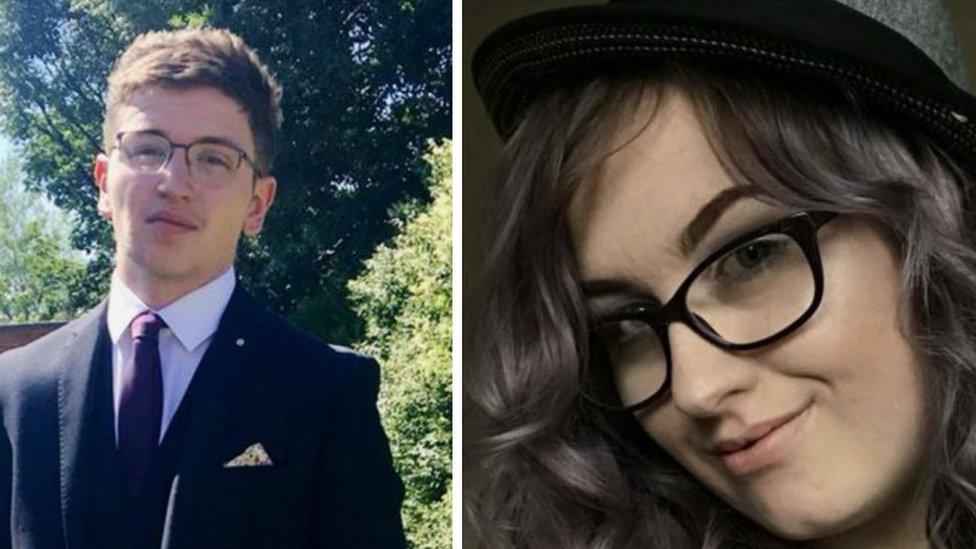
Yousef Makki and Jodie Chesney, both 17, were killed in separate knife attacks two days apart
Sajid Javid has called for knife crime to be treated "like a disease" after meeting police chiefs from seven forces most affected by violent crime.
The home secretary said he wanted a "legal duty" on government departments to help prevent serious violence.
The talks followed a spate of fatal teenage stabbings which has prompted debate about falling police numbers.
Meanwhile, Prime Minister Theresa May announced she would host a summit "in the coming days" to tackle knife crime.
Both police funding and stop-and-search powers were discussed in Wednesday's meeting, Mr Javid said.
He added: "I want serious violence to be treated by all parts of government, all parts of the public sector, like a disease and I want us to tackle it the same way - everyone would come together."
Chairwoman of the National Police Chiefs' Council Sara Thornton said the discussions had been "really constructive "and highlighted the need for extra police officers.
"We've agreed that by the end of the week we'll set out the scale of the investment required," she said.
Durham's Chief Constable, Mike Barton, said he was "heartened" by the meeting while the chief constable of Merseyside Police said the talks were "very good".
Ahead of the meeting, spokespeople from a number of police bodies called for funding for more officers.
Metropolitan Police Commissioner Cressida Dick said there was "obviously" a link between violent crime and falling police numbers.
But Mrs May insisted there was "no direct correlation".
When asked for his view on the matter, Mr Javid said it was important to "always make sure the police have the resources they need", adding: "We have to listen to them when they talk about resources."
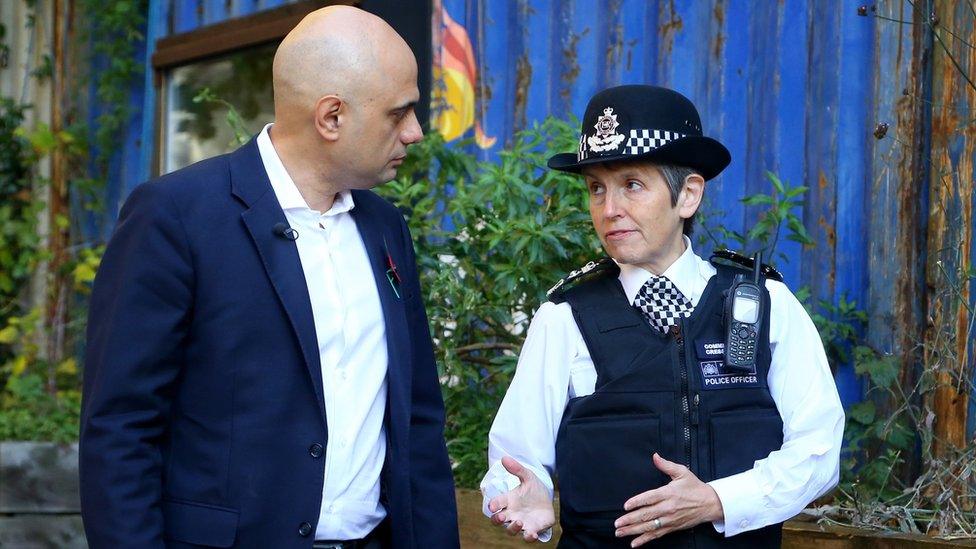
The home secretary said government needed to listen to police concerns about resources
Senior officers from the Metropolitan Police, Merseyside, Greater Manchester, West Midlands, South Wales, South Yorkshire and West Yorkshire attended the meeting, as did representatives of the National Crime Agency and National Police Chiefs' Council.
Earlier, Ms Thornton told BBC Breakfast that "emergency funding" was needed to tackle the problem.
"We need to have more officer hours on the streets," she said.
"We just haven't got the capacity, we just haven't got the officers at the moment so we need some money now to pay for overtime to pay for mutual aid between forces."
Knife crime: What's it like to be stabbed?
It comes after two 17-year-olds were killed in separate stabbings in London and Greater Manchester at the weekend.
Jodie Chesney was killed in an east London park as she played music with friends, and Yousef Ghaleb Makki was stabbed to death in the village of Hale Barns, near Altrincham.
A 17-year-old boy - who cannot be named for legal reasons - has been charged with the murder of Yousef, Greater Manchester Police said. A second 17-year-old boy has been charged with assisting an offender and possession of a bladed article.
Speaking about Yousef's death, Greater Manchester Mayor Andy Burnham said he supported an increase in the use of stop and search by police, even though it was "controversial".
"If there are more young people carrying knives, it follows there needs to be more people apprehended," he told BBC Radio Manchester.
Meanwhile, the Metropolitan Police said a man had been arrested in Leicester in connection with the murder of Jodie.
Jodie's grandmother, Debbie Chesney, wrote on Facebook: "We don't want anyone else to go through what our family is suffering right now. This has to stop, there are too many young people having their lives cut short by needless violence."
In Lancashire, six people have been arrested over a gang attack at a sixth form college. A machete was found near Runshaw College in Leyland, following Monday's incident.
Knife crime victims' stories from Sheffield: "I don't want to not have a mum"
Theresa May told a Cabinet meeting on Tuesday that the killings of Jodie and Yousef were "absolutely appalling".
Her official spokesman said the Home Office would co-ordinate an urgent series of ministerial meetings and engagements to accelerate the work government was doing to support local councils and police.
Mrs May said the problem would require "a whole-of-government effort, in conjunction with the police, the wider public sector and local communities".
Meanwhile, Labour leader Jeremy Corbyn criticised the prime minister for saying there was no direct link between the cut in police numbers and the increase in violent crime.
In a video posted on Tuesday, external, he said young people "shouldn't pay the price for austerity with their lives".

Police officer numbers in England and Wales have dropped by just under 20,000 since 2010, external, while levels of violent crime have risen in recent years.
Figures released in February showed the number of fatal stabbings in England and Wales last year - 285 - was the highest since records began in 1946.
But Donna Murray-Turner, who chairs the Croydon Safer Neighbourhood Board, does not believe more police officers will solve the issue.
She told BBC Breakfast the problem of knife crime was "far more complex and multi-layered than upping the numbers in police officers" and called for greater "community engagement".

Sorry, your browser cannot display this map
- Published5 March 2019
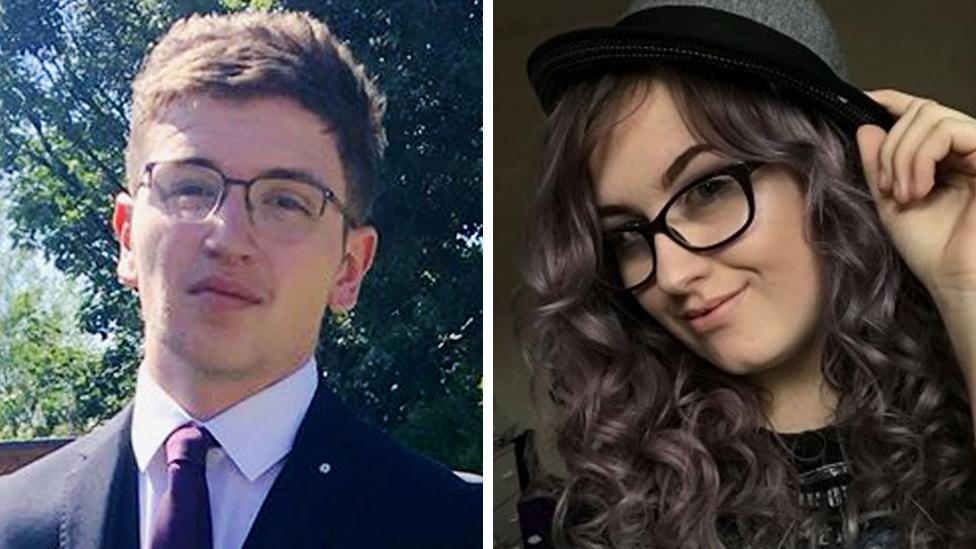
- Published5 March 2019
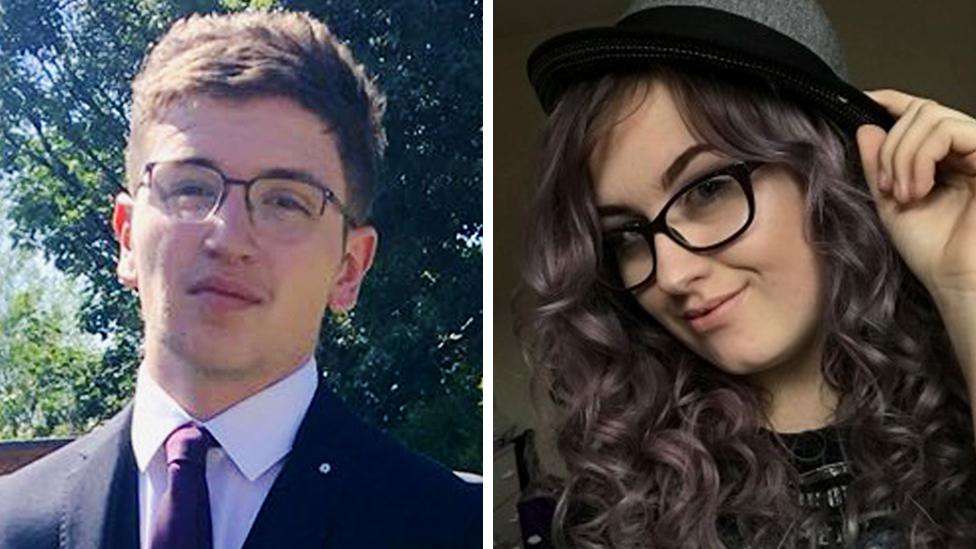
- Published4 March 2019
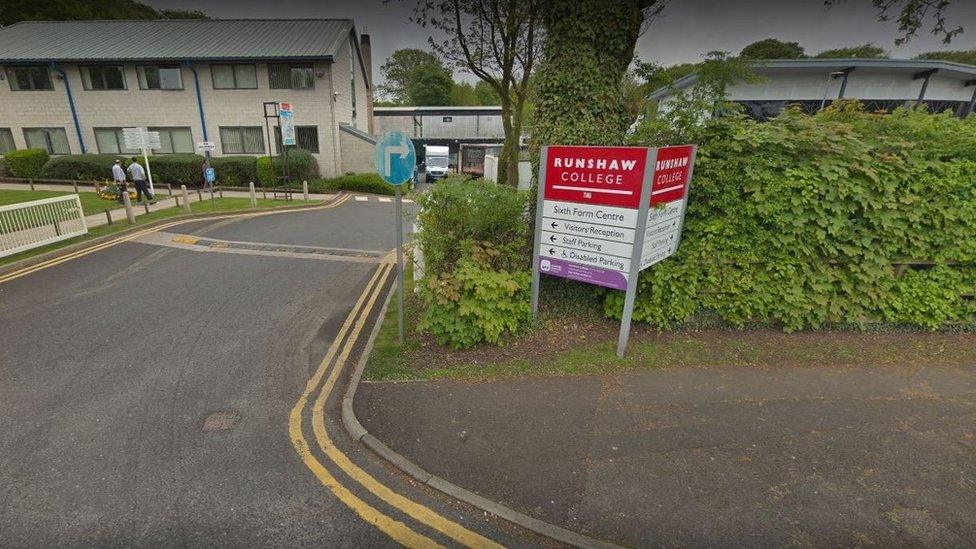
- Published4 March 2019
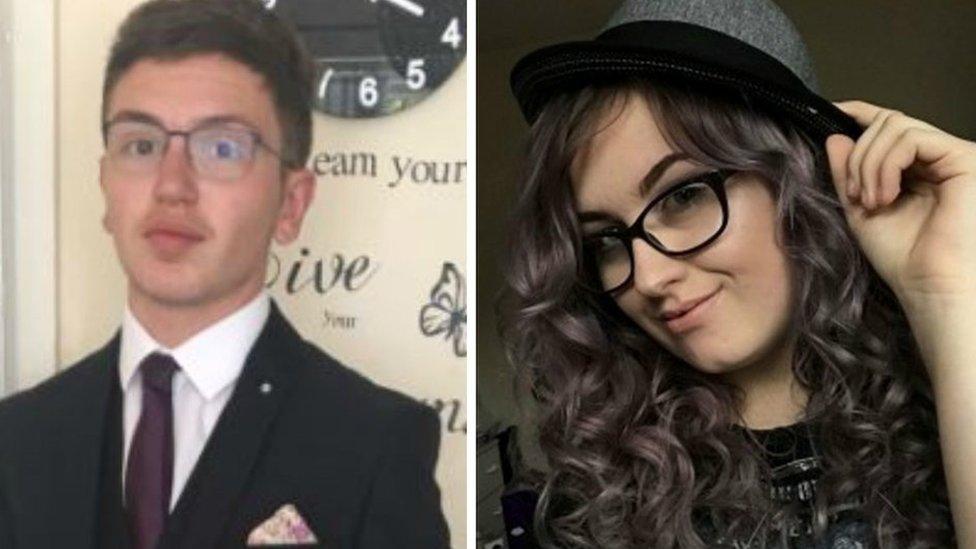
- Published4 March 2019
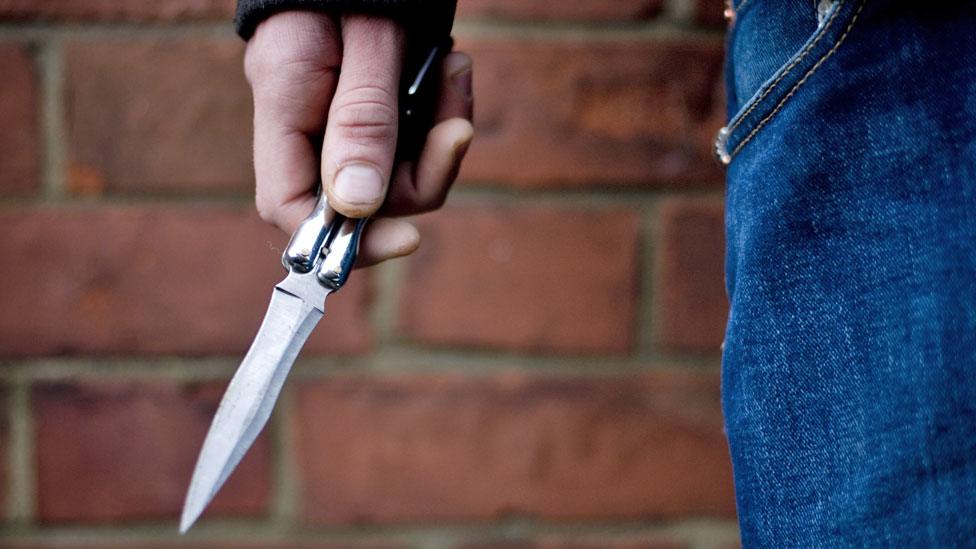
- Published27 February 2019
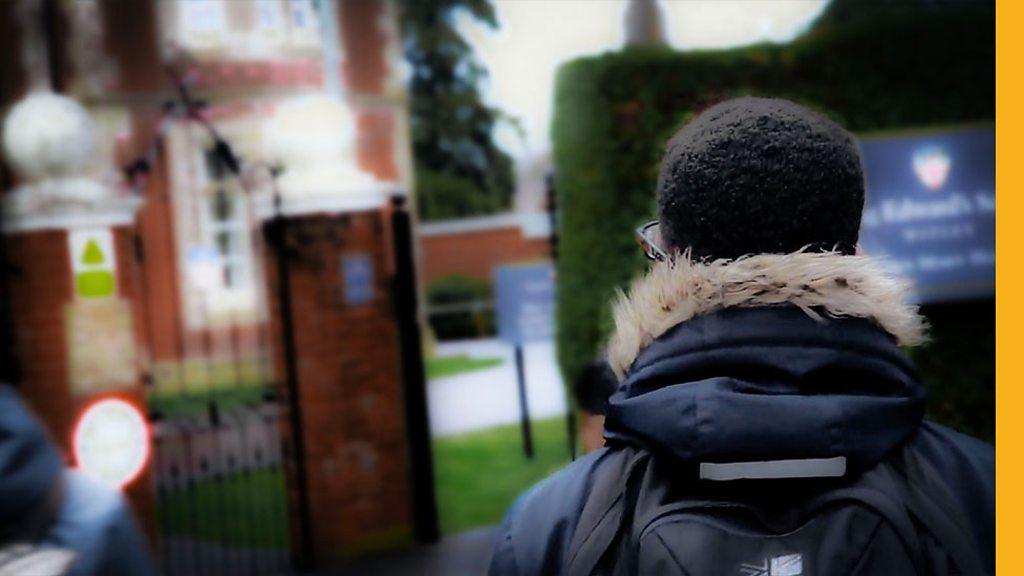
- Published13 February 2019
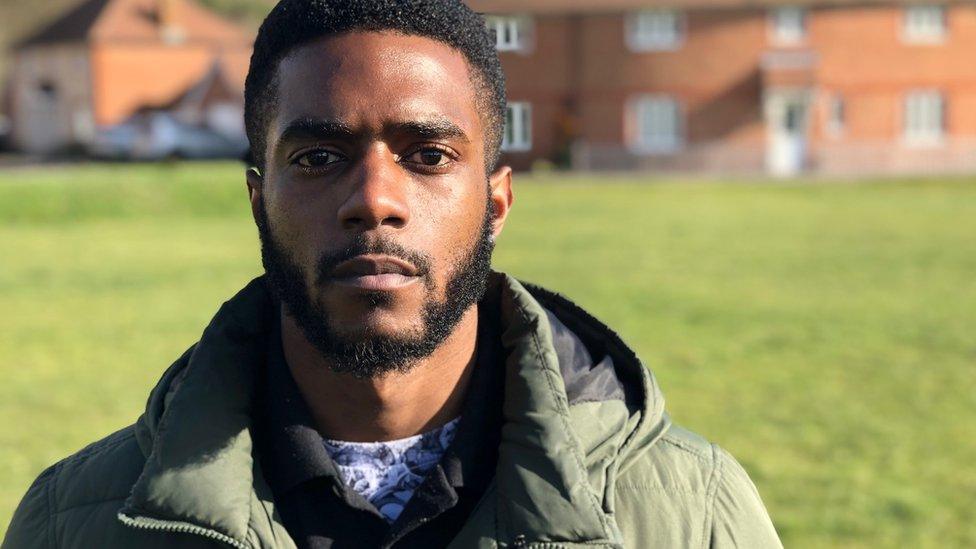
- Published26 July 2019
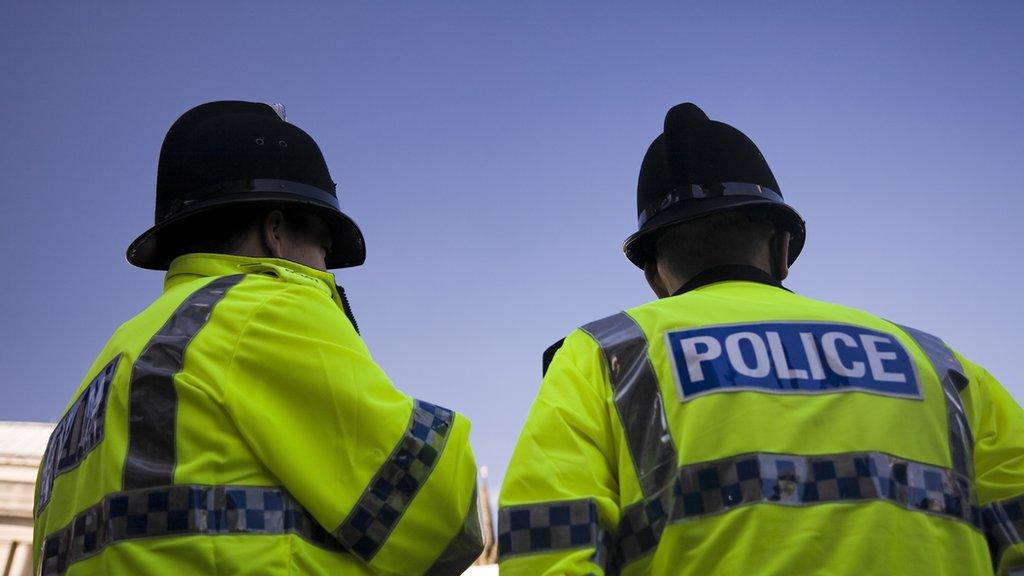
- Published7 February 2019
